
SCARS Institute’s Encyclopedia of Scams™ Published Continuously for 25 Years

SCARS™ Recovery: Taking Care Of Yourself
Self-Care Is Very Important After A Scam
What Is Self-Care?
The term “self-care” refers to actions and attitudes we use to consciously contribute to the maintenance of our overall well-being and personal health.
Self-care can include physical activities as well as emotional practices and changing our perceptions of situations in our lives. While this concept is big in the field of victim services, it can also be generalized to those who are not currently experiencing trauma but are looking to feel more internally healthy and balanced.
Why Is Self-Care Important?
Many crimes involve the use of force or violence against victims – even if it is not physical. Crime victims of all types of crime may experience trauma – emotional wounds or shock caused by the violence against them. Reactions to trauma vary from person to person and can last for hours, days, weeks, months, or years.
Emotional Trauma:
Victims may experience emotional trauma—emotional wounds or shocks that may have long-lasting effects.
Emotional Trauma May Take Many Different Forms:
- Shock or numbness: Victims may feel “frozen” and cut off from their own emotions. Some victims say they feel as if they are “watching a movie” rather than having their own experiences. Victims may not be able to make decisions or conduct their lives as they did before the crime.
- Denial, Disbelief, and Anger: Victims may experience “denial,” an unconscious defense against painful or unbearable memories and feelings about the crime. Or they may experience disbelief, telling themselves, “this just could not have happened to me!” They may feel intense anger and a desire to get even with the offender.
- Stress: Some crime victims may experience trouble sleeping, flashbacks, extreme tension or anxiety, outbursts of anger, memory problems, trouble concentrating, and other symptoms of distress for days or weeks following a trauma.
What Are Some Examples Of Self-Care?
- Positive Affirmations – Each day (or in stressful situations) think through some kind thoughts about yourself and your life. Remind yourself that you have taken steps to care for yourself that might seem easy but are very important, like taking a shower, getting out of bed, or going for a walk. Remind yourself that you are worth praising through nice notes about your appearance, goals, and confidence on your mirror or written down throughout your day.
- Relaxation Exercises – Anything from breathing techniques to practicing meditation and creating a bedtime routine can help to create a relaxing environment to heal and reflect.
- Channeling pain into creativity – Taking up activities like poetry writing, short stories, journaling, drawing or dance serve as outlets to release and process emotions that might otherwise be overwhelming.
- Physical Self-Care – Getting up and moving your body in a way that feels good to you can change your whole mood. If you’re not a person who loves the gym, you can go for a walk with a friend, do some stretches, or dance at home to some feel-good music. Anything that allows you to connect to what your body physically needs in that moment.
- Know and communicate your boundaries – Let others around you know up front what is and is not okay for you. This is especially important in the context of sexual partners but can be applied to any friends, loved ones, and acquaintances.
- Ask for help – No one should be expected to go through life alone and everyone needs help from time-to-time. Asking loved ones for help with life feels overwhelming is important.
- Remind yourself it is okay to walk away from situations that are too stressful or triggering.
Additional resources:
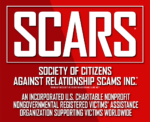
SCARS™ Team
A SCARS Division
Miami Florida U.S.A.
TAGS: Selfcare, Self-Care, Taking Care, After The Scam, Recovery, Emotional Trauma, Psychology Of Scams, Denial, Disbelief, and Anger,
END
– – –
Tell us about your experiences with Romance Scammers in our Scams Discussion Forum on Facebook »
– – –
FAQ: How Do You Properly Report Scammers?
It is essential that law enforcement knows about scams & scammers, even though there is nothing (in most cases) that they can do.
Always report scams involving money lost or where you received money to:
- Local Police – ask them to take an “informational” police report – say you need it for your insurance
- Your National Police or FBI (www.IC3.gov »)
- The SCARS|CDN™ Cybercriminal Data Network – Worldwide Reporting Network HERE » or on www.Anyscam.com »
This helps your government understand the problem, and allows law enforcement to add scammers on watch lists worldwide.
– – –
Visit our NEW Main SCARS Facebook page for much more information about scams and online crime: www.facebook.com/SCARS.News.And.Information »
To learn more about SCARS visit www.AgainstScams.org
Please be sure to report all scammers HERE » or on www.Anyscam.com »
All original content is Copyright © 1991 – 2020 SCARS All Rights Reserved Worldwide & Webwide – SCARS/Romance Scams Now & SCARS/Society of Citizens Against Relationship Scams are all trademarks of Society of Citizens Against Relationship Scams Incorporated (formerly the Society of Citizens Against Romance Scams)
Legal Notices:
All original content is Copyright © 1991 – 2020 SCARS All Rights Reserved Worldwide & Webwide. Third-party copyrights acknowledge.
SCARS, RSN, Romance Scams Now, SCARS|WORLDWIDE, SCARS|GLOBAL, SCARS, Society of Citizens Against Relationship Scams, Society of Citizens Against Romance Scams, SCARS|ANYSCAM, Project Anyscam, Anyscam, SCARS|GOFCH, GOFCH, SCARS|CHINA, SCARS|CDN, SCARS|UK, SCARS Cybercriminal Data Network, Cobalt Alert, Scam Victims Support Group, are all trademarks of Society of Citizens Against Relationship Scams Incorporated.
Contact the law firm for the Society of Citizens Against Relationship Scams Incorporated by email at legal@AgainstScams.org
-/ 30 /-
What do you think about this?
Please share your thoughts in a comment below!
LEAVE A COMMENT?
Thank you for your comment. You may receive an email to follow up. We never share your data with marketers.
Recent Comments
On Other Articles
- on Love Bombing And How Romance Scam Victims Are Forced To Feel: “I was love bombed to the point that I would do just about anything for the scammer(s). I was told…” Feb 11, 14:24
- on Dani Daniels (Kira Lee Orsag): Another Scammer’s Favorite: “You provide a valuable service! I wish more people knew about it!” Feb 10, 15:05
- on Danielle Delaunay/Danielle Genevieve – Stolen Identity/Stolen Photos – Impersonation Victim UPDATED 2024: “We highly recommend that you simply turn away form the scam and scammers, and focus on the development of a…” Feb 4, 19:47
- on The Art Of Deception: The Fundamental Principals Of Successful Deceptions – 2024: “I experienced many of the deceptive tactics that romance scammers use. I was told various stories of hardship and why…” Feb 4, 15:27
- on Danielle Delaunay/Danielle Genevieve – Stolen Identity/Stolen Photos – Impersonation Victim UPDATED 2024: “Yes, I’m in that exact situation also. “Danielle” has seriously scammed me for 3 years now. “She” (he) doesn’t know…” Feb 4, 14:58
- on An Essay on Justice and Money Recovery – 2026: “you are so right I accidentally clicked on online justice I signed an agreement for 12k upfront but cd only…” Feb 3, 08:16
- on The SCARS Institute Top 50 Celebrity Impersonation Scams – 2025: “Quora has had visits from scammers pretending to be Keanu Reeves and Paul McCartney in 2025 and 2026.” Jan 27, 17:45
- on Scam Victims Should Limit Their Exposure To Scam News & Scammer Photos: “I used to look at scammers photos all the time; however, I don’t feel the need to do it anymore.…” Jan 26, 23:19
- on After A Scam, No One Can Tell You How You Will React: “This article was very informative, my scams happened 5 years ago; however, l do remember several of those emotions and/or…” Jan 23, 17:17
- on Situational Awareness and How Trauma Makes Scam Victims Less Safe – 2024: “I need to be more observant and I am practicing situational awareness. I’m saving this article to remind me of…” Jan 21, 22:55
ARTICLE META
Important Information for New Scam Victims
- Please visit www.ScamVictimsSupport.org – a SCARS Website for New Scam Victims & Sextortion Victims
- Enroll in FREE SCARS Scam Survivor’s School now at www.SCARSeducation.org
- Please visit www.ScamPsychology.org – to more fully understand the psychological concepts involved in scams and scam victim recovery
If you are looking for local trauma counselors please visit counseling.AgainstScams.org or join SCARS for our counseling/therapy benefit: membership.AgainstScams.org
If you need to speak with someone now, you can dial 988 or find phone numbers for crisis hotlines all around the world here: www.opencounseling.com/suicide-hotlines
A Note About Labeling!
We often use the term ‘scam victim’ in our articles, but this is a convenience to help those searching for information in search engines like Google. It is just a convenience and has no deeper meaning. If you have come through such an experience, YOU are a Survivor! It was not your fault. You are not alone! Axios!
A Question of Trust
At the SCARS Institute, we invite you to do your own research on the topics we speak about and publish, Our team investigates the subject being discussed, especially when it comes to understanding the scam victims-survivors experience. You can do Google searches but in many cases, you will have to wade through scientific papers and studies. However, remember that biases and perspectives matter and influence the outcome. Regardless, we encourage you to explore these topics as thoroughly as you can for your own awareness.
Statement About Victim Blaming
SCARS Institute articles examine different aspects of the scam victim experience, as well as those who may have been secondary victims. This work focuses on understanding victimization through the science of victimology, including common psychological and behavioral responses. The purpose is to help victims and survivors understand why these crimes occurred, reduce shame and self-blame, strengthen recovery programs and victim opportunities, and lower the risk of future victimization.
At times, these discussions may sound uncomfortable, overwhelming, or may be mistaken for blame. They are not. Scam victims are never blamed. Our goal is to explain the mechanisms of deception and the human responses that scammers exploit, and the processes that occur after the scam ends, so victims can better understand what happened to them and why it felt convincing at the time, and what the path looks like going forward.
Articles that address the psychology, neurology, physiology, and other characteristics of scams and the victim experience recognize that all people share cognitive and emotional traits that can be manipulated under the right conditions. These characteristics are not flaws. They are normal human functions that criminals deliberately exploit. Victims typically have little awareness of these mechanisms while a scam is unfolding and a very limited ability to control them. Awareness often comes only after the harm has occurred.
By explaining these processes, these articles help victims make sense of their experiences, understand common post-scam reactions, and identify ways to protect themselves moving forward. This knowledge supports recovery by replacing confusion and self-blame with clarity, context, and self-compassion.
Additional educational material on these topics is available at ScamPsychology.org – ScamsNOW.com and other SCARS Institute websites.
Psychology Disclaimer:
All articles about psychology and the human brain on this website are for information & education only
The information provided in this article is intended for educational and self-help purposes only and should not be construed as a substitute for professional therapy or counseling.
While any self-help techniques outlined herein may be beneficial for scam victims seeking to recover from their experience and move towards recovery, it is important to consult with a qualified mental health professional before initiating any course of action. Each individual’s experience and needs are unique, and what works for one person may not be suitable for another.
Additionally, any approach may not be appropriate for individuals with certain pre-existing mental health conditions or trauma histories. It is advisable to seek guidance from a licensed therapist or counselor who can provide personalized support, guidance, and treatment tailored to your specific needs.
If you are experiencing significant distress or emotional difficulties related to a scam or other traumatic event, please consult your doctor or mental health provider for appropriate care and support.
Also read our SCARS Institute Statement about Professional Care for Scam Victims – click here to go to our ScamsNOW.com website.


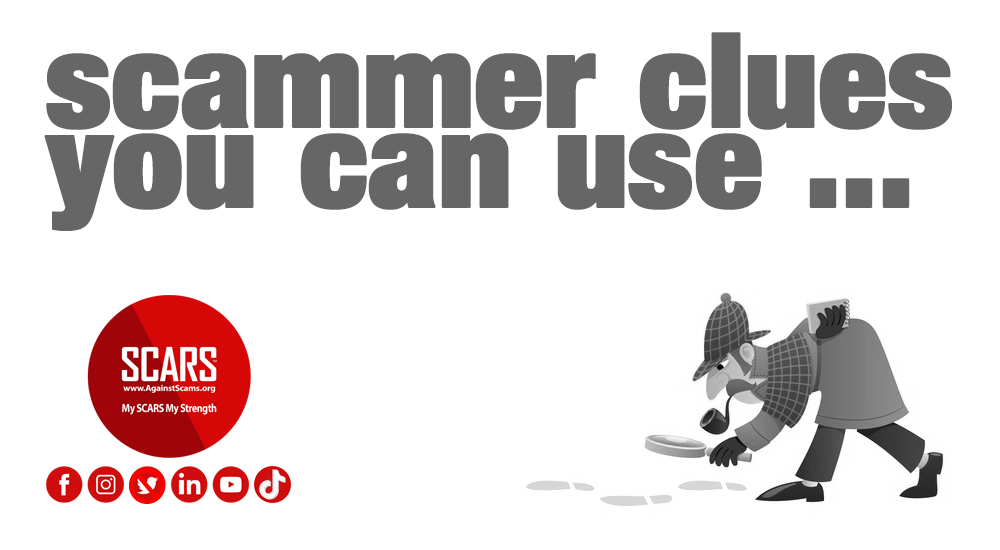
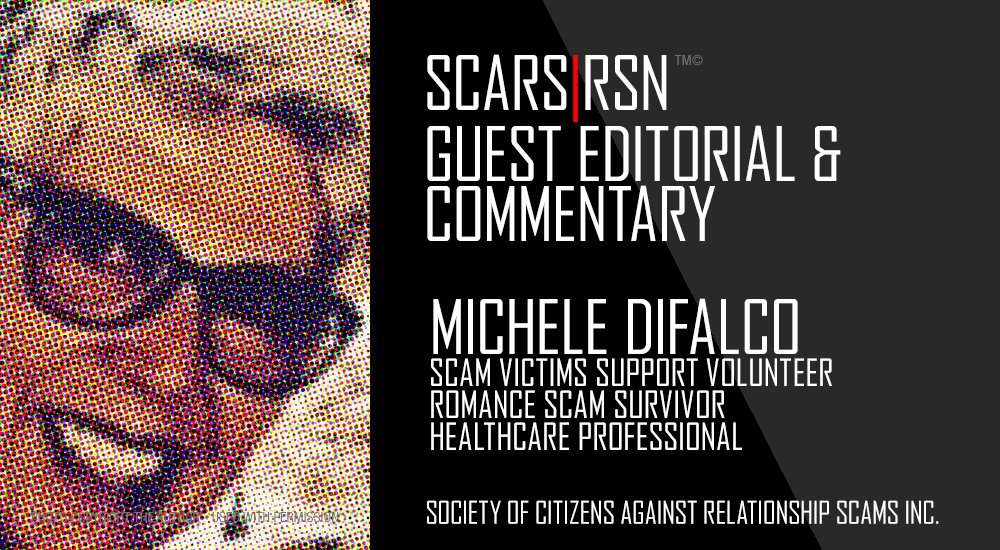




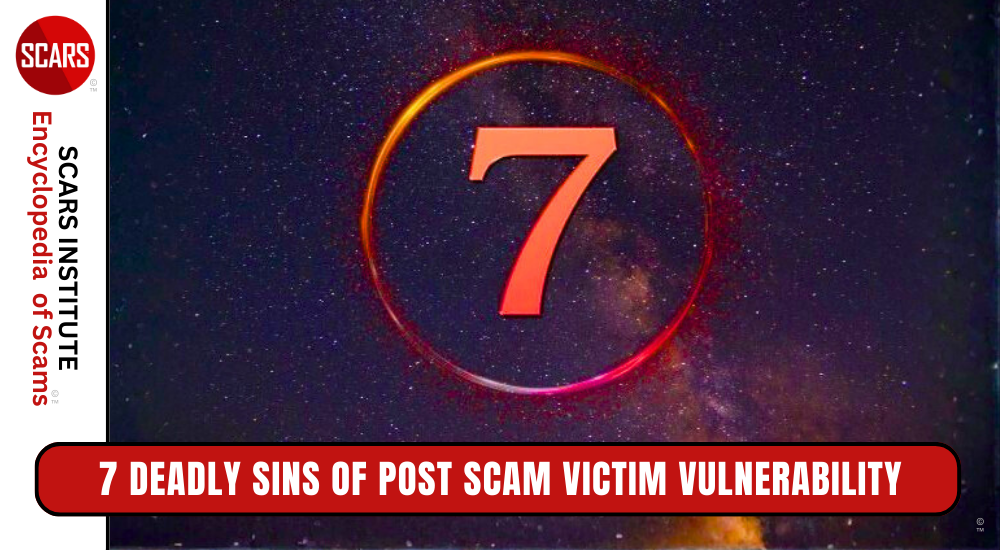

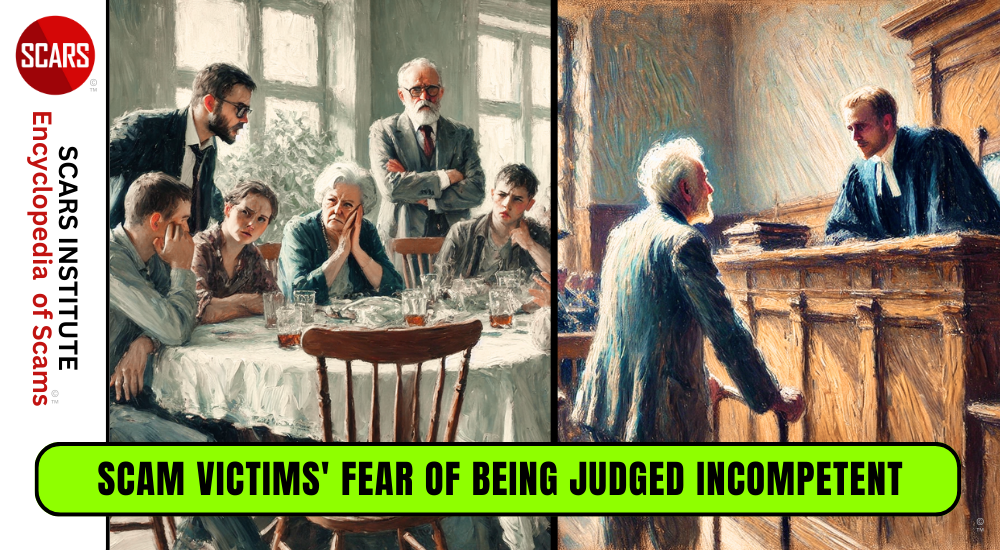
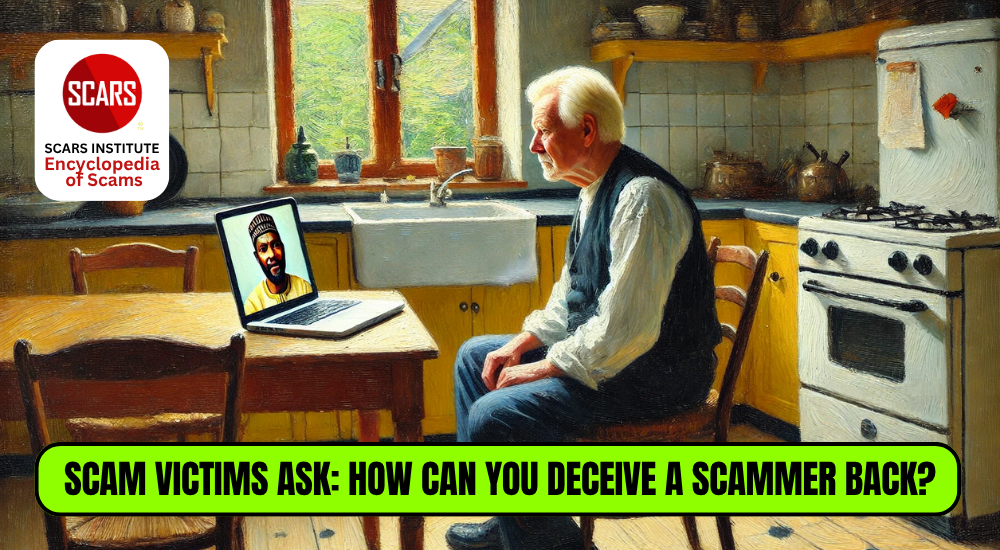
![Financial Recovery - Avoid Money Triggers - Perspective on Money for Scam Victims - 2023 [UPDATED 2025] Financial Recovery Money Triggers Financial Recovery - Avoid Money Triggers - Perspective on Money for Scam Victims - 2023 [UPDAYED 2025] - on the SCARS Institute RomanceScamsNOW.com - the Encyclopedia of Scams™](https://romancescamsnow.com/wp-content/uploads/2025/06/Financial-Recovery-Money-Triggers.png)
![Married Scam Victims: Rebuilding Trust in a Marriage Following a Romance Scam - [UPDATED 2025] Married Scam Victims 2025 Married Scam Victims: Rebuilding Trust in a Marriage Following a Romance Scam - [UPDATED 2025] - on the SCARS Institute RomanceScamsNOW.com - the Encyclopedia of Scams™](https://romancescamsnow.com/wp-content/uploads/2021/04/Married-Scam-Victims-2025.png)




I have been receiving emails from a lady called Tea Bilkos…her email is teabilkos@yahoo.com….im unsure if she is real as a web search on one of her images came back as positive
There are over one billion fake profiles online. If she contacted you then she is a scammer
Ok thanks
The first rule of safety only is that if a stranger contacts you and you do not know for a fact they are real, then they are a scammer – period. Block them and move on. This is not the internet of the 90s – it is no longer safe to reach out to strangers anywhere, we are back to the old fashion way of meeting people – introductions or face to face.
i am such that he is a scammer how can i tell we have been with one other secne Oct 2018
can get help with this i would ask but i need to no for sure
Thank you Carol kanellos
You already know for sure, you just do not want to believe it, right? There are more than ONE BILLION fake identities online. If he contacted you first then you can be sure he is a scammer. It is that simple.